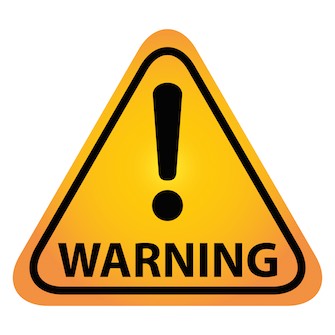 The use of relative terminology, which are short-hand terms that express a certain similarity, are quite common in everyday conversation, but present real and present dangers when used without serious deliberate thought and consideration in a patent application. The use of relative terminology is most seriously problematic in patent claims specifically. This is true because patent claims must particularly point out and distinctly claim the subject matter invented. See Distinctly identifying the invention in exact terms. Therefore, the use of relative terminology in patent claims comes with real risks that must not be taken lightly.
The use of relative terminology, which are short-hand terms that express a certain similarity, are quite common in everyday conversation, but present real and present dangers when used without serious deliberate thought and consideration in a patent application. The use of relative terminology is most seriously problematic in patent claims specifically. This is true because patent claims must particularly point out and distinctly claim the subject matter invented. See Distinctly identifying the invention in exact terms. Therefore, the use of relative terminology in patent claims comes with real risks that must not be taken lightly.
Relative terminology is problematic because certain words that you might want to use are not nearly as descriptive as you might think. The description you are providing by relying on relative terms can leave open the possibility of miscommunication and ambiguity. Ambiguity is the archenemy of patent drafters and must be avoided.
The terms “like”, “similar”, “type” and others of similar ilk will simply not be appropriate for use in patent claims because they do not convey a concrete description. Instead, terms such as those will only provide a relational description. When using this type of relative terminology, you are not describing an action or element itself in any direct manner, but rather you are describing the action or element in terms of what it has in common with something else. In many situations, the comparison you are drawing is not relevant to the invention, or at least won’t be directly relevant, which will itself can create unnecessary confusion.
In what may initially seem like a rule that splits hairs that are not meant to be split, terms such as “approximately” and “substantially” are acceptably used in patent claims. These terms do provide more information and generally do convey a meaningful relationship. With respect to relative terminology such as “approximately” or “substantially,” the question will be what is “approximately” or what is “substantially”? If the specification provides an answer to that question, perhaps through use of examples or thanks to the context of the technology being discussed, the use of the terms will be definite.
For example, if you use the characterization “substantially at the end” and you are discussing measurement units in microns, the reader will immediately have an idea about what it must mean to be “substantially at the end.” It simply could not mean within centimeters, if the context of the usage is microns.
The use of relative terminology in patent claim language will not automatically render the claim indefinite under 35 U.S.C. 112(b) or pre-AIA 35 U.S.C. 112, second paragraph. See Seattle Box Co., Inc. v. Industrial Crating & Packing, Inc., 731 F.2d 818, 221 USPQ 568 (Fed. Cir. 1984). The acceptability of the claim language depends on whether one of ordinary skill in the art most closely pertaining to the invention would understand what is claimed in light of the specification.
For those looking for more advanced treatment of this topic, please see MPEP 2173.05(b).
Tags: patent, Patent Claim Drafting, patent claims, patents




You share in the PLI Practice Center community, so we just ask that you keep things civil. Leave out the personal attacks. Do not use profanity, ethnic or racial slurs, or take shots at anyone's sexual orientation or religion. If you can't be nice, we reserve the right to remove your material and ban users who violate our Terms of Service.